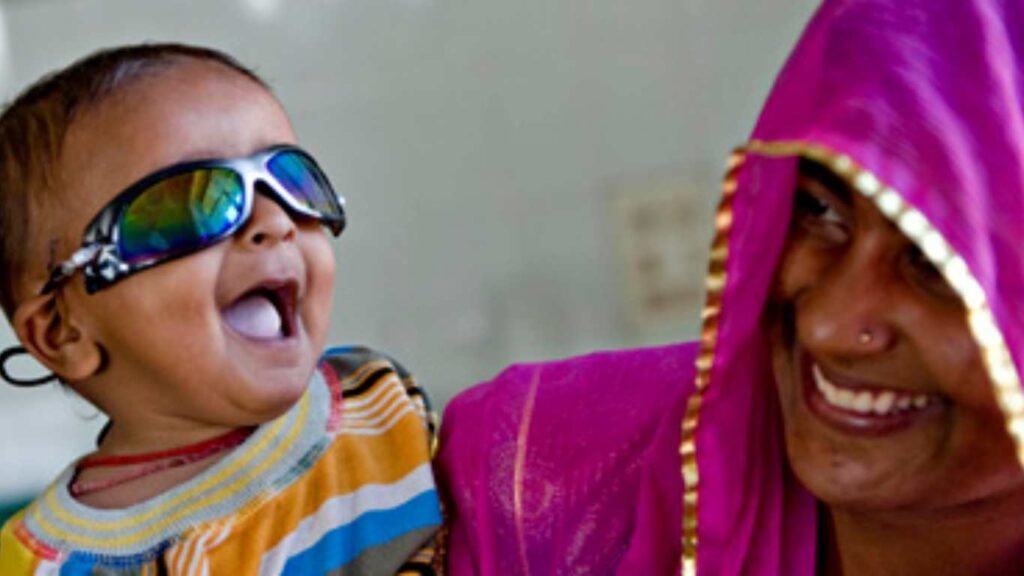The pressing need for eye health services in the impoverished desert region of Rajasthan, India, was brought to light in a survey conducted by one of Sightsavers’ local partners in North India, Urmul Seemant Samity.
The survey’s objective was to identify all individuals with disabilities in Bikaner, one of the poorest districts in the Thar Desert, and connect them with appropriate services. Due to poverty, isolation, and harsh climatic conditions, health is not prioritized in this area, leading to a high prevalence of blindness.
During the survey of approximately 200 villages, over 300 children were identified as having sight problems.
In Desperate Need of Help
Among the families encountered were the Singhs, whose youngest son, Kuldeep, had been blind from birth due to cataracts. Nine-month-old Kuldeep was not the only family member with sight problems; four other children, including Kuldeep’s older sister, were also severely visually impaired. Hari Singh, the head of the household and Kuldeep’s grandfather, lamented, “We took them to see the traditional healer, but he couldn’t help us. We had no choice but to accept the situation.”
The family was invited to attend a special eye camp for a proper assessment. All the Singh children were diagnosed with cataracts in both eyes. The older ones were taken to the hospital in the nearby city of Dahod and underwent successful surgery at Drashti Netralaya. (Drashti Netralaya is one of the centers of excellence in western India, serving the tribal population of the states of Rajasthan, Madhya Pradesh, and Gujarat.) The medical staff there decided to wait until Kuldeep was a few months older before performing his surgery.
Fortunately, Kuldeep’s cataract operation was successful.
After the surgery, he exhibited signs of improved vision, such as looking at the doctor’s torch. “We are all celebrating,” says Kuldeep’s mother. “Five members of our family have new sight. We’d like Kuldeep to be a doctor when he grows up so that he can help restore vision and bring happiness to others.”
